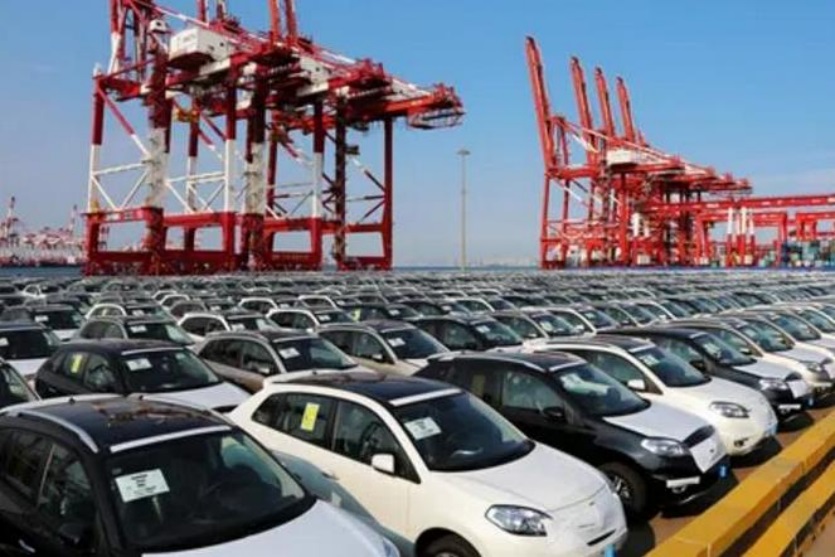
Recently, according to the US Wall Street Journal reported that the US government plans to increase the import tariff of Chinese electric vehicles from the current 25% to 100%. This comes on the heels of an agreement between China and the United States to strengthen cooperation on climate-related issues, including the promotion of green energy. This move by the United States has undoubtedly put a "veil" on cooperation.
In this regard, the local media in the United States questioned, saying that the trade protectionism of increasing tariffs is driving American automakers into the abyss. So why is the US raising tariffs on electric car imports?
First of all, the recent poor overall sales of electric vehicles in the United States, which may be related to the lack of infrastructure construction in the United States (such as charging piles), leading to low consumer acceptance of electric vehicles, more inclined to hybrid vehicles. Therefore, the United States may want to protect the domestic electric vehicle industry by raising tariffs to reduce the number of imported electric vehicles.
Second, the United States may try to improve its trade deficit with China by raising tariffs to reduce demand for Chinese high-tech products and technologies. However, such a move may harm the interests of both sides, aggravate economic and trade frictions, and is not conducive to bilateral cooperation and development.
In addition, there are views that the United States may raise electric vehicle import tariffs for political considerations, such as to win votes in the election. The imposition of tariffs can be seen as a commitment to the industrial workers of domestic companies in the United States to demonstrate the government's support for domestic industry.
Finally, the United States may also be concerned about China's rapid development in the field of new energy vehicles and try to slow this trend by raising tariffs. However, history has proved that technology is constantly advancing, and blockade and repression will only stimulate China's stronger development momentum.
To sum up, there may be many reasons for the United States to raise import tariffs on electric vehicles, however, such an approach by the United States may also bring a series of negative effects.
For American consumers, there is a higher price to pay for electric vehicles. This may weaken the competitiveness of electric vehicles in the market and reduce consumers' willingness to buy, thus limiting the further development of the electric vehicle market. In addition, high tariffs could also lead to a reduction in the supply of electric vehicles in the US market and a narrowing of consumer choices.
For electric vehicle manufacturers, they may face greater export pressure and market uncertainty. High tariffs will increase the price of their products in the US market and reduce their competitiveness, potentially leading to a decline in sales and a loss of market share. This will have a negative impact on their financial situation and long-term development.
The impact on the global electric vehicle industry is also far-reaching. Electric vehicles are one of the important development directions of the global automotive industry, and all countries are actively promoting the development of electric vehicles. The increase in tariffs by the United States may disrupt the competitive landscape of the global electric vehicle market, affecting trade relations and industrial cooperation between countries.
The policy could also trigger a trade war and retaliatory measures. If China were to take similar tariffs or other retaliatory measures, it would likely lead to further trade tensions between the two sides, with adverse effects on the global economy.
In general, the harmful behavior of the United States in raising import tariffs on electric vehicles has seriously affected the normal global trade order. Countries need to consider their own economic and political interests, as well as their relations with other countries, when responding to the US tariff increase on electric vehicles. At the same time, it is also necessary to pay attention to changes and trends in the global market in order to adjust their strategies in time.

報告顯示,中國電力投資加速增長,預計2024年電網基建投資將超過5300億元。
近日,市場迎來了一則引人注目的消息:工業巨頭3M公司(MMM.N)在本周五公布了其季度業績報告,隨後股價飆升至近兩年來的
最近,外媒給OpenAI算了筆賬,今年可能要血虧50億美元。
近日,巴黎奧運會和世界鐵人三項協會聯合發布了一項重大決定,宣布因塞納河水質污染問題,原定於近期進行的奧運會鐵人三項首次下
當地時間7月18日,法國巴黎發生了一起令人震驚的持刀襲警事件。
近期,一則重大消息在國際舞臺上引起軒然大波,馬來西亞宣布加入金磚國家。
調查發現,互聯網和智能手機的使用幹擾了韓國近五分之一學生的生活。